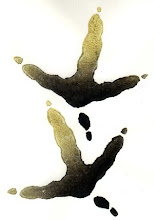 My researches this morning have been devoted to the topic of "bird hunting vicars in literature," and, although I haven't been able yet to turn up another one on a par with H. G. Wells, I did stumble across an interesting essay on the history of picnics, in which, interestingly enough, the history of hunting plays a prominent role.
My researches this morning have been devoted to the topic of "bird hunting vicars in literature," and, although I haven't been able yet to turn up another one on a par with H. G. Wells, I did stumble across an interesting essay on the history of picnics, in which, interestingly enough, the history of hunting plays a prominent role.Consider the following:
PICNIC. There is no reliable etymology for the word picnic, with the original use of the word lagging about three hundred years behind the first descriptions of alfresco (open air) dining. From about 1340 until the very early 1800s, there are three contextual descriptions of picnics, whether or not the word is actually used: a pleasure party at which a meal was eaten outdoors; a hunt assembly; and an indoor social gathering or dinner party. An outdoor meal in a garden is described in Italian literature by Giovanni Boccaccio in a poem that dates from about 1340. Sixty years later a similar event occurs in one of Geoffrey Chaucer's Canterbury Tales. It seems certain that the assemblée, or meal served during the hunt that is described and illustrated in the hunt manual of Jacques du Fouilloux's La Vénerie (Hunting) (1560) and George Turberville's The Noble Arte of Venerie (1575), are picnics in all but name. By 1692, the concept of the alfresco meal shifted, and when cited in Gilles Ménage's Dictionnaire du Etymologique de la Langue Françoise (Etymological dictionary of the French language) piquenique is assumed to be of unknown origin, but means un repas où chacun paye son écot (a meal where each pays his share). By 1750, Ménage's editors suggest that piquenique may be of Spanish origin and that it appeared in 1664 in a French translation of works by Francisco Quevedo. Oliver Cromwell, Lord Protector of Great Britain, had a dinner served on the grounds of Hyde Park in 1654. Samuel Pepys, the English diarist, ate many meals while boating on the Thames or sitting on its banks. These are picnics in all but name, but they are only recorded as a dinner alfresco.Check it out: hunt assemblies and outdoor game suppers were the original picnics! Fascinating. Think about THAT next time Cabin Boy serves Pete's Mallard down at Double Black . . . .
"But what does all this have to do with hunting vicars, Jim?" you ask.
Well, I'll tell you lads: "Nothing at all." But . . . BUT, the first picnic in literature is credited to . . . drum roll please . . . Oliver Goldsmith and The Vicar of Wakefield! Check it out:
The Oxford English Dictionary says that the word "picnic" originally referred to fashionable social entertainment in which each person contributed a share of the provisions, and says that the first recorded use of "picnic" in English appears in 1748 in a letter from Lord Chesterfield to his son, in the sense of an assembly or social gathering. It seems that the word was used in this sense widely in Germany, as Chesterfield's son was in Berlin at the time. A subsequent mention occurs in a letter from Lady M. Coke to Lady Stafford in 1763 from Hanover. Gustaf Palmfelt, a Swede, in a 1738 translation into Swedish used "picnick" (in the sense of an assembly); Swedish continues to use "picnick" and suggests that it is of French or English origin. Larousse Gastronomique (2002) states that 'picnic' is a contraction of pique (to pick), piquante (sharp or pungent), and nique (of small value). This suggestion seems commonsensical, but it is guesswork based on the technique of word formation by clipping words together to form a new word.
In the arts and literature, picnics tend to be more concerned with place, action, and figurative meanings and less concerned with food, if it is mentioned at all. Oliver Goldsmith, whom Georgina Battiscombe (English Picnics, 1949) credits with describing the first picnic in English literature in The Vicar of Wakefield (1766) provides these bare bones: "Our family dined in the field, and we sat, or rather, reclined round a temperate repast, our cloth spread upon the hay." Battiscombe insists that a picnic must be a meal eaten outdoors to which diners bring something to eat, even if there is no sharing. She suggests that before the Romantics made nature fashionable "no one connected the idea of pleasure with the notion of a meal eaten anywhere but under a roof" (p. 4).
So there you have it: bird hunting vicars, outdoor repasts, and Penn State. It's all good.









2 comments:
Hey, this is quite an epicurial post Dr. T. Nice work.
You are presiding well over your blogdom.
yeah, well . . . look what you started.
Post a Comment